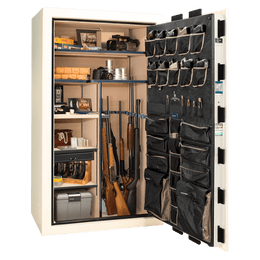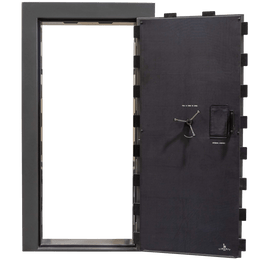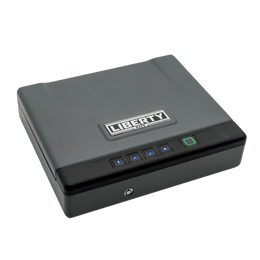If you plan on hunting in Utah this year, there are some crucial steps that you must take before you venture out into the wild to catch yourself some game. Every Utah hunter needs to meet specific age, education, and licensing requirements before they can even apply to obtain their permits.
Follow our guide to learn the basics of Utah’s hunting laws, hunter ethics, and how to store your hunting equipment in Utah.
Why it is important to know a state’s hunting laws?
First, let’s dive into the “Why?” Understanding a state’s hunting laws is an important step that every hunter needs to take, often before even applying for a hunting permit. Most states require some basic education around their hunting laws before you’re allowed to go out on the hunt.
This is important for a few reasons:
- Safety. There are laws in place to ensure your own safety as well as public safety. Following the regulations set in place around hunting will help keep your hunting party and the surrounding community safe while you hunt, helping to prevent any serious incidents.
- Protection from rural crime. There are trespassing laws in place to protect landowners from disturbance to their property. Knowing the trespassing laws in your state will help keep you out of trouble and keep private property protected.
- Wildlife protection. There are regulations in place to protect the environment and wildlife resources. Animal welfare and ethical hunting practices have a direct impact on ensuring a thriving ecosystem and society’s perception of hunting.
Hunter ethics that every hunter should know
All hunters should abide by a specific code of conduct while engaging in the hunt. If you’re unfamiliar with basic hunting ethics and etiquette, we have a few of the common practices that you should employ while you are out hunting.
Follow the law
First and foremost, you should always be familiar with and follow the hunting laws wherever you are hunting. Laws are in place to ensure hunter, community, and environmental protection.
Respect the animals
A huge part of hunting ethics is respecting your quarry. It is the hunter’s responsibility to ensure a quick and clean kill. This means using ammunition or tools that are appropriate for the species you are targeting and causing as little pain and suffering as possible to your target. Not every hunter will fatally wound their target every time, so it is also important to follow up quickly and efficiently to avoid prolonged suffering of the animal.
This also requires that you keep up on your skills. Regularly practice with your rifle or weapon of choice to ensure confidence and accuracy while you are hunting.
Practice fair chase
“Fair chase” is a principle that basically means giving the animal a fair chance at evasion. Your pursuit of the target shouldn’t give you an unfair advantage. What this means can vary from hunter to hunter, but here are some basic guidelines you can follow to ensure fair chase:
- Don’t herd or chase animals with motorized vehicles
- Don’t trap or drug animals before pursuing
- Don’t use electronic communication devices to aid in catching an animal
- Don’t pursue an animal that is helpless (swimming, trapped in snow, etc.)
Use the entire animal
This goes hand-in-hand with respecting the animal. You should make your best effort to find and take home any animals that you killed and use each part of the animal. Don’t kill more than you can physically carry home. Then, make sure edible portions of the animal are removed and prepared to be eaten (whether you eat the meat, sell it, or donate it) before you get your trophy.
Be respectful toward others
This should go without saying, but you should treat others as you wish to be treated. Don’t trespass on private property, don’t litter, and be courteous toward others you encounter while hunting.
This includes being respectful towards non-hunters who may hold different values than your own. Don’t display your kill on the top of your vehicle as you ride home. Instead, discreetly cover it. Not everyone wants to see a dead animal, and you are also respecting the animal by keeping it protected to ensure less spoilage of the meat.
Utah hunting rules and regulations
So, what are the rules and regulations that you should know when you are hunting in Utah? This is not a comprehensive list but will give you the basics of getting started in understanding Utah’s hunting laws.
Age requirements
You must be at least 12 years old in order to hunt big game in Utah. You may apply to obtain your permits for big game at age 11 if you will be age 12 by December 31 of that same year. (But remember you still can’t hunt until you are 12).
Utah does have a Trial Hunting Program that allows individuals aged 12 and older to try hunting–while accompanied by a licensed hunter of 21 years or older–without the need to complete a hunter education course.
Hunters who are 16 years and younger must be accompanied by a parent, legal guardian, or another responsible adult who is 21 years or older and has been approved by their guardian. Youth must remain close enough for their guardians to see them and provide verbal assistance (without the use of walkie-talkies or electronic devices).
Hunter education
All hunters who were born after December 31, 1965, must complete hunter certification in order to hunt in Utah. In order to buy a hunting license, you must first complete a course approved by the Utah Division of Wildlife Resources and IHEA-USA.
A good note to be aware of is that the Utah Hunter Education Certificate is accepted in all U.S. states that require hunter education, likewise, Utah will accept certificates from other states so long as they meet official IHEA-USA requirements. This is referred to as reciprocity.
You must obtain a Utah “blue card” in order to get your hunting license in Utah. This card proves that you meet Utah’s education requirements. You can get this by completing Utah’s hunter education course or by providing proof that you’ve completed another hunter education course approved by the Division.
Licenses
You must have a current hunting license (or combination hunting and fishing license) before you can obtain any big game permits in Utah. As long as your license was valid on the date that you submitted your application for your game permit, then you won’t need to purchase a new license for your hunt.
Permits
Before you can hunt any big game, you have to obtain the appropriate hunting permit. Most big game permits are issued through the big game drawing, but some are available for over-the-counter purchase in July each year.
If you do obtain a big game permit, you must keep it on your person while you are hunting, and you are not allowed to alter, sell, or transfer your permit to another person.
CWMU buck deer hunts (private land hunts)
Cooperative Wildlife Management Units (CWMUs) are private lands that the owners have opened up for limited public and private hunters to use. You must obtain a separate buck deer permit for that specific CWMU if you wish to hunt there.
Check for chronic wasting disease
Chronic wasting disease (CWD) is a rare, but serious, disease that attacks the nervous system of infected deer, elk, and moose. The Division has been monitoring this disease since 1998. Depending on where you are hunting, you may be required to bring your catch into a Division check station to collect a sample from the deer.
For a more in-depth look at Utah’s hunting laws, visit utah.gov.
Trespass laws for hunters in Utah
Make sure you are aware of the trespass laws for hunters before you begin your hunt in Utah.
- You must have written permission before entering or crossing properly posted private property.
- You must also obtain written permission for private property that is unposted if:
- The soil is loosened for the raising of crops.
- There are crops on the property.
- The land is irrigated by ditches or a sprinkling system.
- If you take wildlife while trespassing, you can be charged with a Class B Misdemeanor for illegally taking wildlife. And the wildlife can be taken from you.
You can use this Landowner Permission Card to get permission to hunt on private property.
How to store your hunting equipment
When you aren’t honing in your skill or out on a hunt, it’s important to have a proper place to store your hunting equipment. As a gun owner, it is your responsibility to ensure your firearms are always stored in a place that is inaccessible to children, at-risk individuals, or other unauthorized people.
Here are some important guidelines to keep in mind as you find appropriate gun storage:
- You should store your firearms unloaded in a locked gun safe, gun vault, cabinet, or storage case.
- You can use gun-locking devices that render your firearms inoperable in addition to locked gun storage.
- When possible, store ammunition in another locked location separate from your firearms.
- When you remove firearms from your safe or vault, be sure to thoroughly check that they are unloaded.
The best firearm protection you can get is a home gun safe that has multiple locking mechanics built into it. You’ll want something that is difficult to break into that will also protect your firearms in the event of a natural disaster.
While you are out hunting, particularly if you go on longer trips, you may also want to invest in a car gun safe for additional safety measures while you are out on the road.
Get the right gun safe at Liberty Safe
At Liberty Safe, we have put the time into creating the perfect gun safe for your home. Whether you are looking for the best long gun storage or need additional secure storage options for valuables, we can help you find just the safe you need.
Find out which safe is right for you with our home gun safe quiz.
*Made in the U.S.A. from U.S. and Global Parts.







